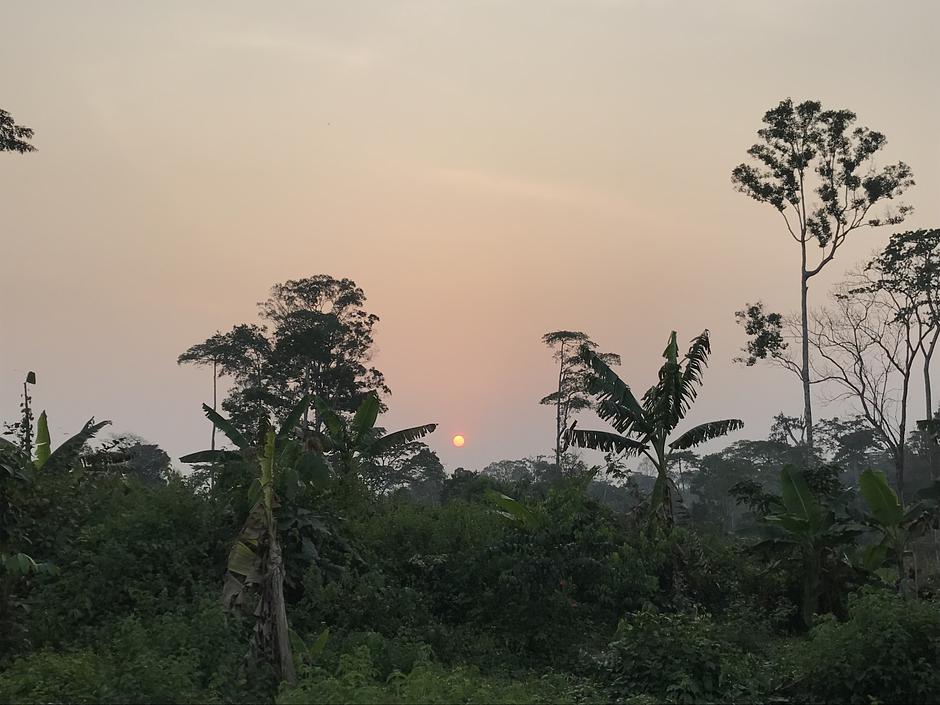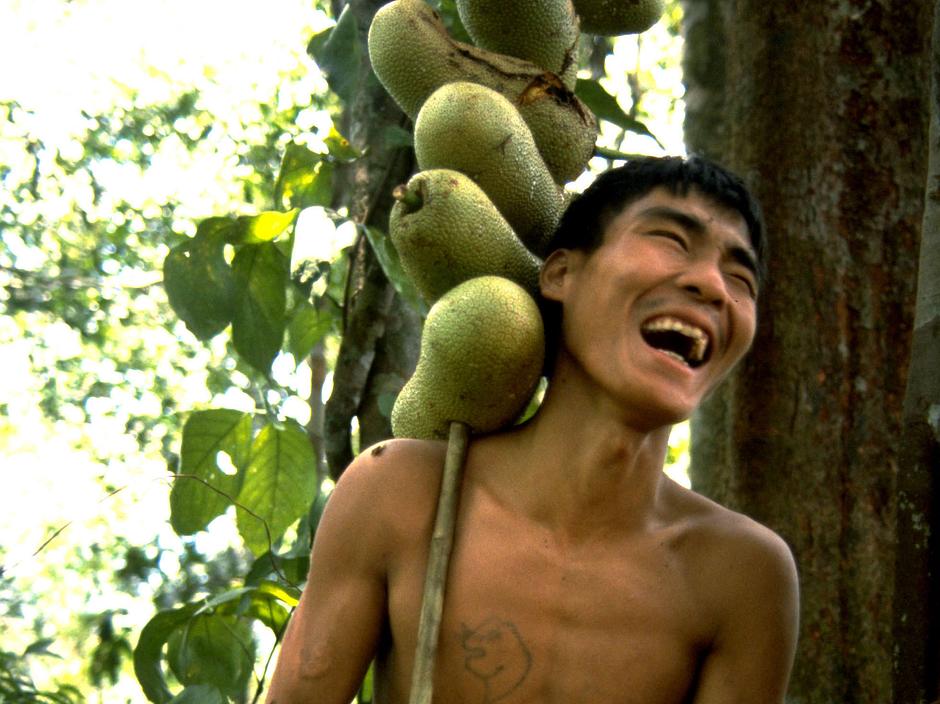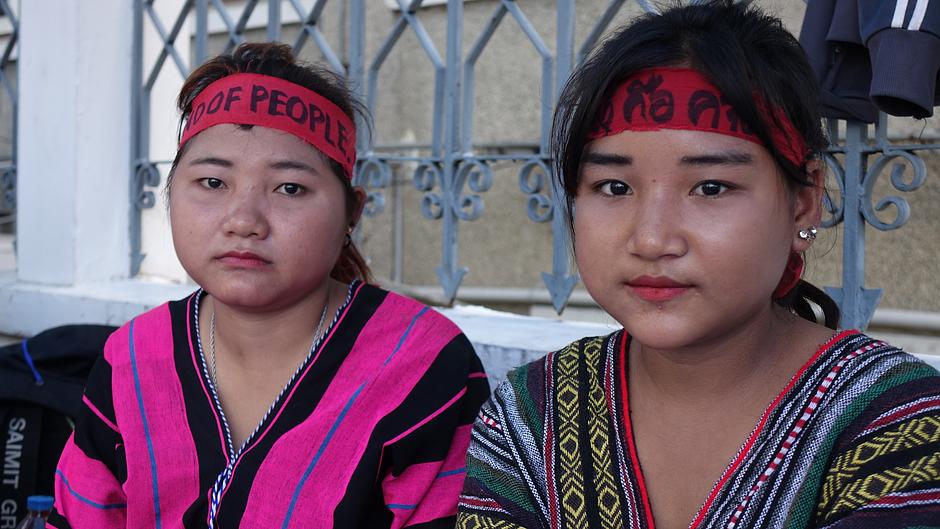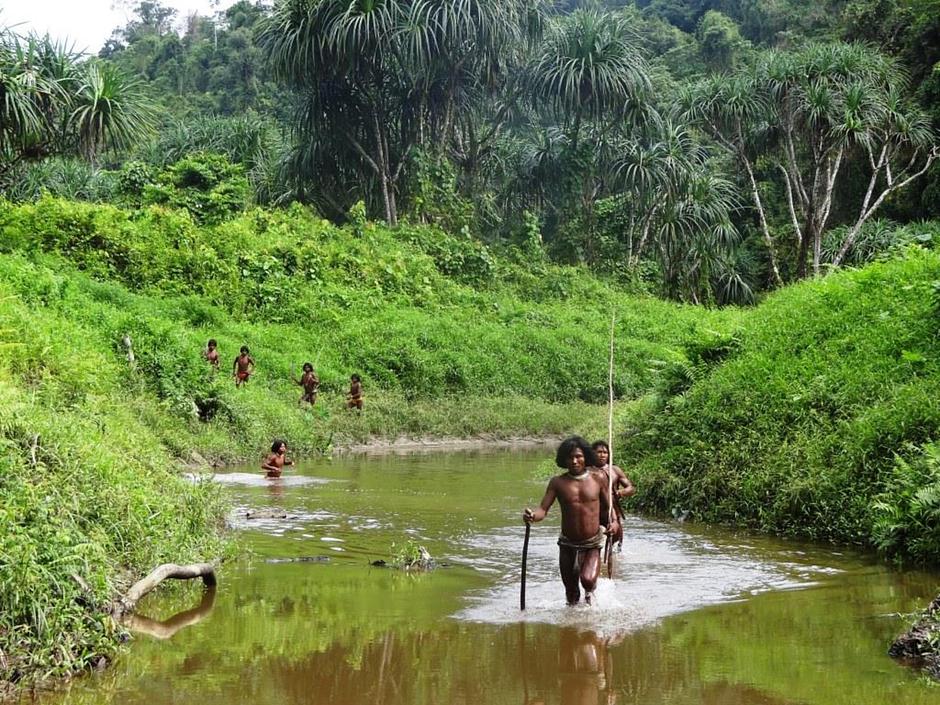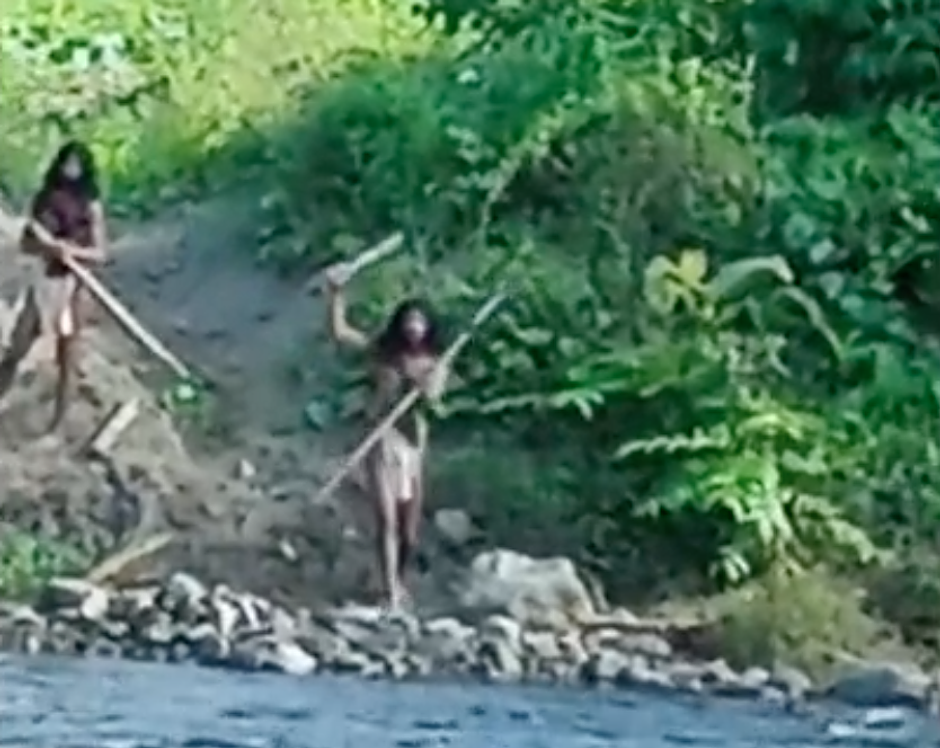And if this forest is not destroyed, then we can live, even though our houses are small.
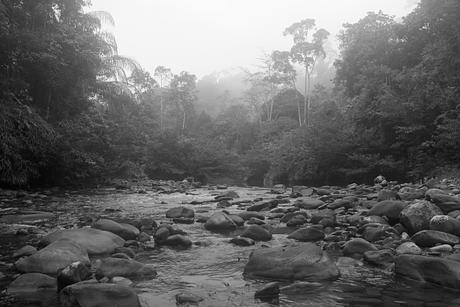 © TH/Survival
© TH/SurvivalThe Penan of Malaysia are fighting to protect their rainforest homeland.
THE PLACE OF ORIGINS
For the Penan of Sarawak’s rainforest, the raucous call of the white-crowned hornbill has long heralded dawn. Today, however, they as likely to be woken by the sound of chainsaws and falling trees.
The tropical rainforest of Sarawak in Borneo, East Malaysia, is one of the most biologically rich forests on earth. It is also home to the Penan people, one of the last hunter-gatherer tribes in Malaysia; they have lived in harmony with the rainforest, with its fast-flowing rivers and twisting networks of limestone caves, for thousands of years.
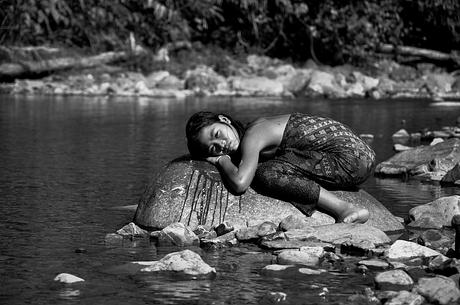 © Sofia Yu/Survival
© Sofia Yu/Survival
The land is sacred, a Penan man said. It belongs to the countless who are dead, those who are living and the multitudes yet to be born.
They call the forest okoo bu’un : the place of their origins.
NOMADS
Until the 1960s, most Penan lived nomadically – some still do, while many others have been settled in villages. Nomads move camp frequently in search of boar, following the cycles of fruiting trees and wild sago palm, and trade forest products such as aromatic wood and rattan for knives, pans and tarpaulin.
Penan men hunt wild boar (babui_), barking deer and other small animals, such as squirrels and lizards. These are killed with blowpipes (_keleput) made from hardwood and darts laced with tajem, a poison extracted from the milky latex of a tree, which interferes with the functioning of the heart.
Prey is carried home on the hunter’s back, and meat is then equitably distributed. Theirs is an egalitarian society in which sharing is paramount; for the Penan, the most serious social offence is see hun, a term that means ‘a failure to share’.
Their primary source of carbohydrate is the starchy pith of the wild sago palm, and they also traditionally eat river cucumber soup, rambutan fruit and various types of fish.
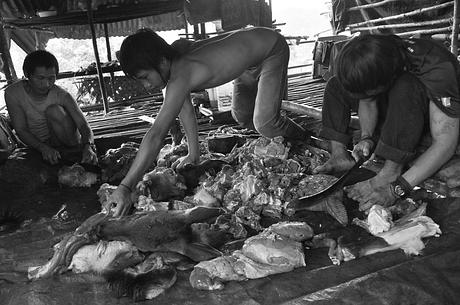 © Sofia Yu/Survival
© Sofia Yu/Survival
RAINFOREST EXPERTS
Over generations of rainforest life, the Penan have amassed vast stores of intricate botanical knowledge. They understand the ecological and climatic cycles of the forest, and are receptive to tiny changes in light, or to the subtle increase in rainforest temperature that presages a thunderstorm.
Their temporary homes, known as sulaps, are made from the saplings of trees, and are used by all Penan when they stay in the rainforest.
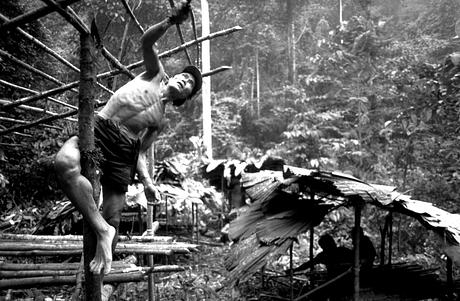 © Andy Rain & Nick Rain/Survival
© Andy Rain & Nick Rain/Survival
They make dart quivers and nose flutes from bamboo and bracelets from rattan. They also use plants to cure a range of ailments and have always communicated with other tribal members through a complex signal system of stick and leaf symbols, which they refer to as oroo.
Sensitively attuned to animal behaviour – the Penan imitate the noise of a baby deer in order to attract adult deer to hunt – they consider themselves inseparable from their environment. Their innate sense of sustainability and responsibility for the forest – encapsulated in the Penan principle of molong, meaning to preserve – means that little is left behind in their camps.
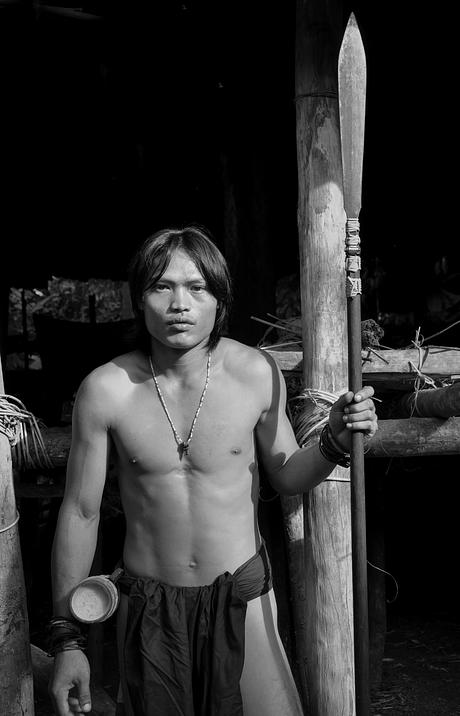 © Sofia Yu/Survival
© Sofia Yu/Survival
LOGGING
Most of the 10-12,000 Penan now live in settled communities, although both settled and nomadic Penan continue to rely on the forest not only for their nutrition and technology, but for their spiritual sustenance and sense of identity as a people.
They have a fight on their hands. For decades, they have been trying to halt the destruction of the Sarawak rainforest: since the 1970s, the government has backed commercial logging on tribal land.
From the slopes of Gurung Murut, Borneo’s highest mountain, to the swamplands of the coastal plains, the once lush world of virgin forest, giant ferns and hanging lianas is now largely denuded.
The Sarawak state government does not recognise the Penan’s rights to their lands, despite the national and international laws that defend Indigenous land rights.
Give us the right and chance to decide about any development that takes place on the traditional land of the Penan, the Penan have said.
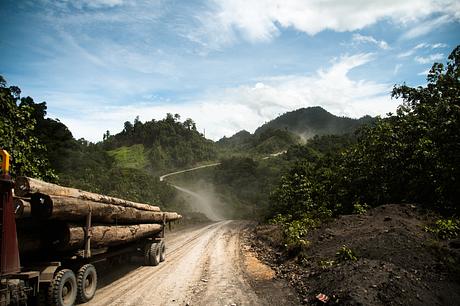 © Julien Coquentin
© Julien Coquentin
Dusty red roads transport loggers and bulldozers deep into the forest. The steep-sided valleys that once were filled with birdsong now resound with the noise of trucks and crashing timber.
The Malaysian government claims that Sarawak is being logged sustainably. The reality is very different: its forests are being felled at one of the fastest rates in the world – twice that of the Amazon.
In areas where all valuable trees have been cut down, companies are now razing every last tree in order to grow oil palm . Even areas that have been designated as protected reserves, called pulau, are being destroyed.
For those with a commercial interest in the rainforest, logging is the sound of ‘progress’. For the Penan, it is the sound of death.
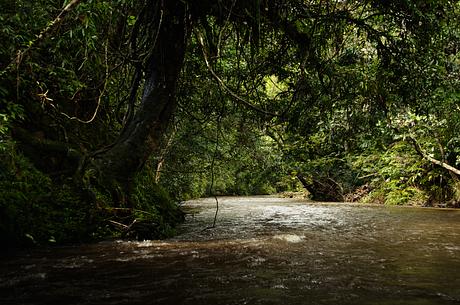 © Julien Coquentin
© Julien Coquentin
The headwaters of Sarawak’s mighty rivers are now silted and polluted by sawdust and rotting logs. The fish on which the Penan depend are dying and game, frightened by logging, is driven deeper into the remaining forests.
Felled trees, landslides, soil erosion, river pollution and the loss of tree canopy not only rob the Penan of shelter, game, fish and clean water, but of their hope and spiritual happiness.
It is hard for us to look at the red land, they have said. We are only happy when there is a breeze, when we are under the trees, when we find ourselves in the shade of the forest.
STEAK AND CADILLAC LIVES
The Malaysian government has made no secret of its desire to bring ‘development’ to the Penan, whom it sees as ‘backward’.
We are asking them to give up their unhealthy living conditions and backwardness for better amenities and a longer and healthier lifestyle, a Minister is reported to have said.
‘Let them stay at the Waldorf Astoria in New York for two years with the amenities of cadillacs and beautiful juicy steaks. When they come back let them decide whether they want to live in the style of New Yorkers or as Penan in the forest.
The Penan see their position very differently. Living in the forest is all that I know, said one Penan woman. We do not know the lifestyle of others.
They do know that daily life in settlement villages is far from a steak-and-cadillac life. Homes have been built in unsuitable areas without suitable sewerage facilities, and polluted rivers cause stomach disorders and skin diseases. Malnutrition, poverty and disease are rife.
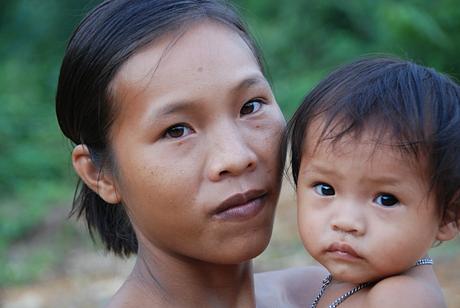
OIL PALM
Palm oil – found in breakfast cereals, cosmetics and engine lubricant – has been hailed as the saviour of bio-fuels; a cheap alternative to fossil fuels that will help the world in cutting greenhouse gas emissions.
Now that a huge proportion of Sarawak’s primary rainforest has been logged at least once, large areas are being cleared and burned for acacia and palm oil plantations.
In forests denuded by logging, the Penan are still able to eke out a hunting existence, despite the scarcity of wild boar and competition with loggers for the forest’s remaining food.
Oil palm plantations are an entirely different proposition, however: they destroy forest eco-systems entirely.
In December 2013, forty Penan families set up a blockade in protest against Shin Yang, for trespassing on their ancestral land.
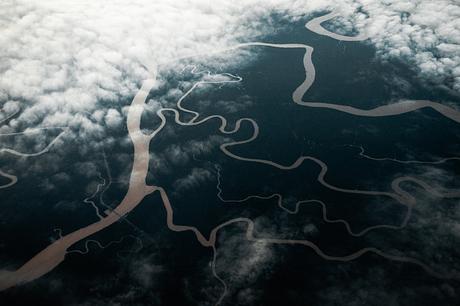 © Julien Coquentin
© Julien Coquentin
DAMS
Today the Penan also face another new threat: hydroelectric dams.
The government plans to build twelve new dams across Sarawak by 2020. In the process of construction, villages belonging to the Penan and other Indigenous peoples will be flooded.
The first of these dams, the Murum dam, is nearing completion. Approximately 1,400 Penan have now been moved to government resettlement villages.
Their lives have changed irrevocably.
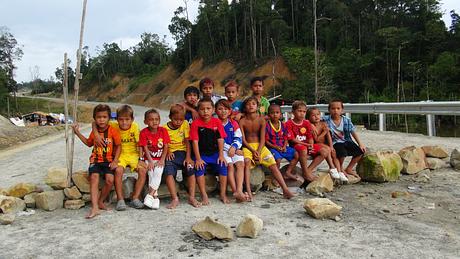 © Raymond Abin/Survival
© Raymond Abin/Survival
RESISTANCE
In mid September 2013, the flooding of the Murum dam began, despite the fact that the Penan had not been properly consulted about the resettlement process and the relocation site had not been completed.
The Penan resisted, blockading the Murum dam site for 77 days, during which time several were arrested, and protestors faced repeated intimidation at the hands of the police. Some Penan also travelled to Kuala Lumpur to march against the government’s actions.
We refuse to be displaced from our centuries-old ancestral land, they said. We will not be treated like refugees in our own country.
BULLY TACTICS
But by November 2013, faced with rising waters approaching their villages, lack of food at the protest site, and the imminent dismantling of a bridge which led to their villages, the Penan were forced to call an end to their blockade and accept the move to the new government resettlement site.
Their old villages are now completely submerged – and the resettlement site is as yet incomplete.
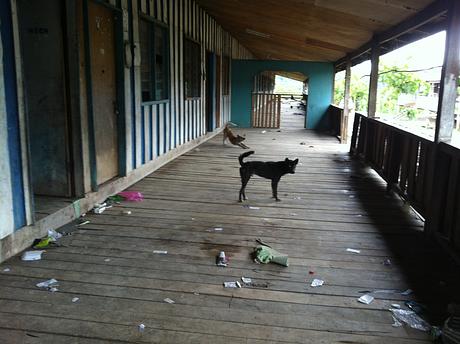 © Raymond Abin/Survival
© Raymond Abin/Survival
As part of the resettlement agreement, the Penan were promised compensation of just over US$7000 per family. But their other demands, including additional land and forest in which to hunt, have been ignored.
Despite promises from the Sarawak government, the relocation of the Penan for the Murum dam has not met international standards.
The Penan were not properly consulted and the process was shrouded in secrecy, said Sophie Grig, Senior Campaigner at Survival International, the global movement for tribal peoples’ rights.
The Murum Penan have now been dumped in an abandoned oil palm plantation against their wishes and without enough forest to sustain them. Anyone who spends time with the Penan will know that the rainforest it is everything to them. Without it, they cannot survive.
The Penan need their rights to their land to be respected, she continued. This means there should be no logging, plantations or dam building on their lands. Nothing, without their consent.
Trees that are cut down were once
the shelter of hornbill,
the home of gibbons,
the home of langur,
the home of every single kind of animal
that lives up high.
Where is their home now?
Gone. Finished!
The government says we are animals,
- like animals in the forest.
We are not animals in the forest.
We are Penan.
Humans.
I myself know I am human.
Penan spokesman, Dawat Lupung.
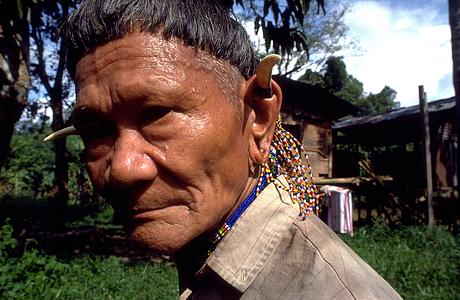 © Andy Rain & Nick Rain/Survival
© Andy Rain & Nick Rain/Survival


